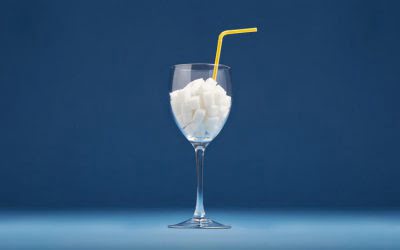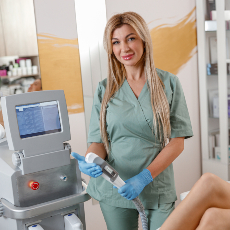It may shift from stimulant to sedative in line with whether blood alcohol content is rising or falling. Given the power of alcohol on the brain, people who drink heavily may come to rely on it to regulate their mood. In the DSM-5, alcohol use disorder is further classified into categories of mild, moderate, and severe. Having support and seeking professional treatment increases the chances for recovery from AUD. Groups such as Alcoholics Anonymous (AA) provide support for people who are recovering. According to the Centers for Disease Control and Prevention (CDC), moderate drinking is typically defined as two drinks or fewer for men per day, or one drink or less for women.
Behavioral treatments
A strong support system is helpful for making a complete recovery. Symptoms of alcohol use disorder are based on the behaviors and physical outcomes that occur as a result of alcohol addiction. Although the exact cause of alcohol use disorder is unknown, there are certain factors that may increase your risk for developing this disease. Unhealthy alcohol use includes any alcohol use that puts your health or safety at risk or causes other alcohol-related problems. It also includes binge drinking — a pattern of drinking where a male has five or more drinks within two hours or a female has at least four drinks within two hours.
When Does Alcohol Use Become Alcoholism?
- Males, college students, and people going through serious life events or trauma are more likely to experience AUD.
- These changes increase the pleasurable feelings you get when you drink alcohol.
- And there are a few approaches that can identify and combat drinking at an early stage.
Talk to your healthcare provider if you’re under stress and think you may be at risk for relapse. Many people with AUD do recover, but setbacks are common among people in treatment. Seeking professional help early can prevent a return to drinking. Behavioral therapies can help people develop skills to avoid and overcome triggers, such as stress, that might lead to drinking.

Homeless people and advocates brace for Peoria’s new public sleeping ban
Alcohol consumption was also linked to a greater risk for stroke, coronary disease, heart failure, and fatally high blood pressure. However, it’s difficult to discern if drinking was the primary problem, or whether lifestyle choices such as diet and exercise influenced health outcomes as well. Alcohol Use Disorder is a https://californianetdaily.com/contraindications-against-lpg-massage/ pattern of disordered drinking that leads to significant distress. It can involve withdrawal symptoms, disruption of daily tasks, discord in relationships, and risky decisions that place oneself or others in danger.

How is alcohol use disorder diagnosed?
The concept of inveterate drunkenness as a disease appears to be rooted in antiquity. The Roman philosopher Seneca classified it as a form of insanity. The term alcoholism, however, appeared first in the classical essay “Alcoholismus Chronicus” (1849) by the Swedish physician Magnus Huss. The most severe form of alcohol withdrawal is known as alcohol withdrawal delirium or delirium tremens, often referred to as the DTs. Symptoms (which are typically experienced in addition to others caused by alcohol withdrawal) include delirium (confusion), high blood pressure, and agitation. Healthcare providers diagnose the condition by doing a physical examination to look for symptoms of conditions that alcohol use disorder may cause.

The sober-curious and Dry January movements buoy the 41% of Americans who planned to drink less in 2024 to improve their mental, financial and physical health, as reported by marketing data firm NCSolutions. That number may grow because of https://ladaonline.ru/news/3194/h?PAGEN_1=907 recent research that shows a strong connection to cancer from drinking three or more alcoholic drinks a day. For many, beer, wine, and spirits conjure up thoughts of social gatherings and tipsy fun. But alcohol is a nervous system depressant and easily alters behavior, culminating in some cases in the emotional pain and physical disintegration of alcohol addiction, colloquially known as alcoholism. Experts continue to debate the benefits and risks of drinking and passionately argue over whether moderation or complete abstinence is the best option for those who struggle with alcoholism.

alcoholism
Most residential treatment programs include individual and group therapy, support groups, educational lectures, family involvement, and activity therapy. You can prevent alcohol use disorder by limiting your alcohol intake. According to the National Institute on Alcohol Abuse and Alcoholism, women shouldn’t drink more than one drink per day, and men http://altemamarket.ru/index/page486/ shouldn’t drink more than two drinks per day. Alcohol use disorder can cause serious and lasting damage to your liver. When you drink too much, your liver has a harder time filtering the alcohol and other toxins from your bloodstream.
Alcohol & Your Health

Children of alcoholics enter adulthood damaged, not launched; they figure out on their own how to make a safe landing. A study published in 2012 in the medical journal Drug and Alcohol Review found that 33% to 40% of children affected by parental alcohol problems develop a substance-related disorder themselves. Some people may be hesitant to seek treatment because they don’t want to abstain entirely. Moderation management or moderation treatment can be an effective approach, in which people learn responsible drinking habits through a structured program. Research suggests this form of treatment can help people shift from heavy to moderate drinking, improve quality of life, and enhance emotional well-being.
Not only does AUD affect the health of the person with the disease, but it also impacts the lives of those around them. Medications, behavioral therapies, and social support groups are among the strategies to combat this disorder. Under the direction of licensed therapists or counselors, behavioral therapies involve psychological strategies to modify drinking behaviors.

